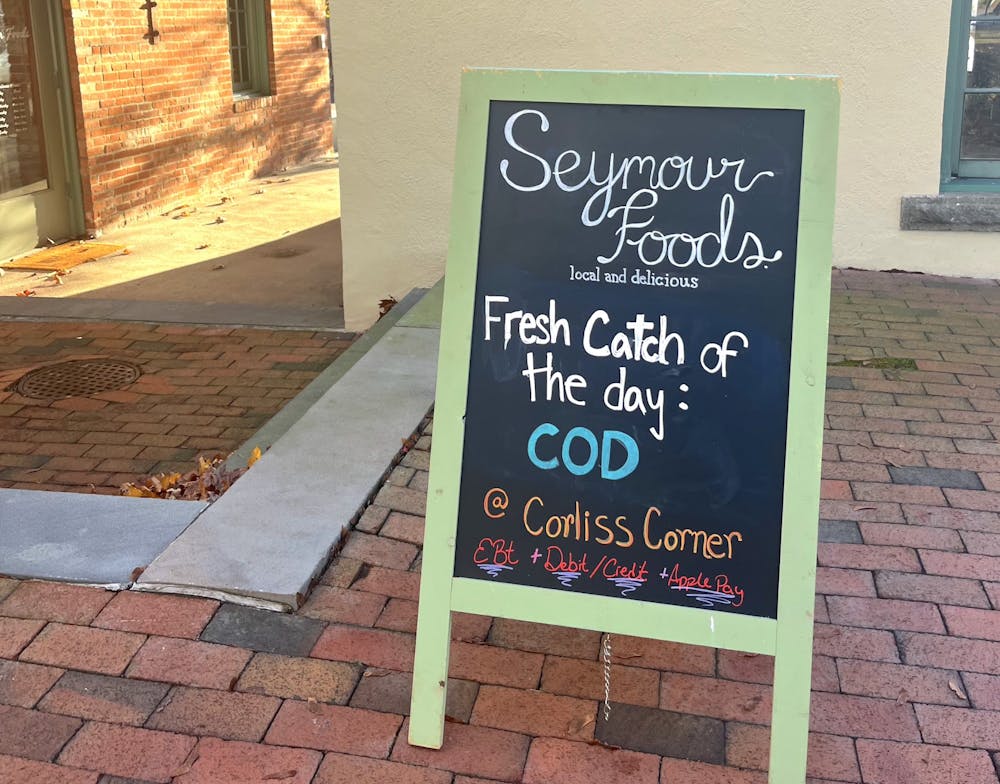From Oct. 6-8, Seymour Foods celebrated the grand opening of their first brick-and-mortar location, tucked away under the arch at Corliss Corner on Wickenden Street. The location offers a colorful array of baked goods, produce, beverages and more, primarily sourced from Massachusetts and Rhode Island, according to co-owners Lisa Kellogg and Chloe Fasano.
The company aims to make locally sourced food “affordable and accessible,” according to their website. According to Fasano, they strive for accessibility through home delivery, as well as accepting varied forms of payment including SNAP — Supplemental Nutrition Assistance Program, formerly called food stamps. In terms of affordability, “the more we buy from local producers, the more they can lower their prices,” she said.
The idea was born out of communication with vendors, Kellogg said. Both co-owners previously worked at a company which did local food delivery during the COVID-19 pandemic, but when it shut down suddenly, vendors asked the duo if they would be willing to take over, she said.
“Then we started brainstorming,” Kellogg said. Initially, they focused on Community Supported Agriculture, which involved delivering fresh produce to customers. With time though, they started operating pop-up shops and selling at farmers markets, she added.
“We don’t just know our farmers — we spend time with them,” the shop’s website reads. “We pick up the inventory (directly) so we can see the operation for ourselves.”
This close relationship with vendors is what sets Seymour Foods apart, according to its owners. “This would not exist if we didn’t know them well,” Fasano said.
It also allows them to answer questions about the producers. “Somebody will pick up a jar of syrup, and they'll be like, ‘Oh, tell me about this,’” she said. “We've talked to the person whose idea it was to create (the product).”
This allows them to relay the “story” of the product to customers. “It's a different shopping experience,” Kellogg said.
The duo “jumped at the chance” to get a physical storefront, Fasano said. “We always knew we wanted to do retail.”
Having a storefront allows them to have more conversations with customers and even facilitates collaboration between vendors, Fasano said. “It’s building a community.”





